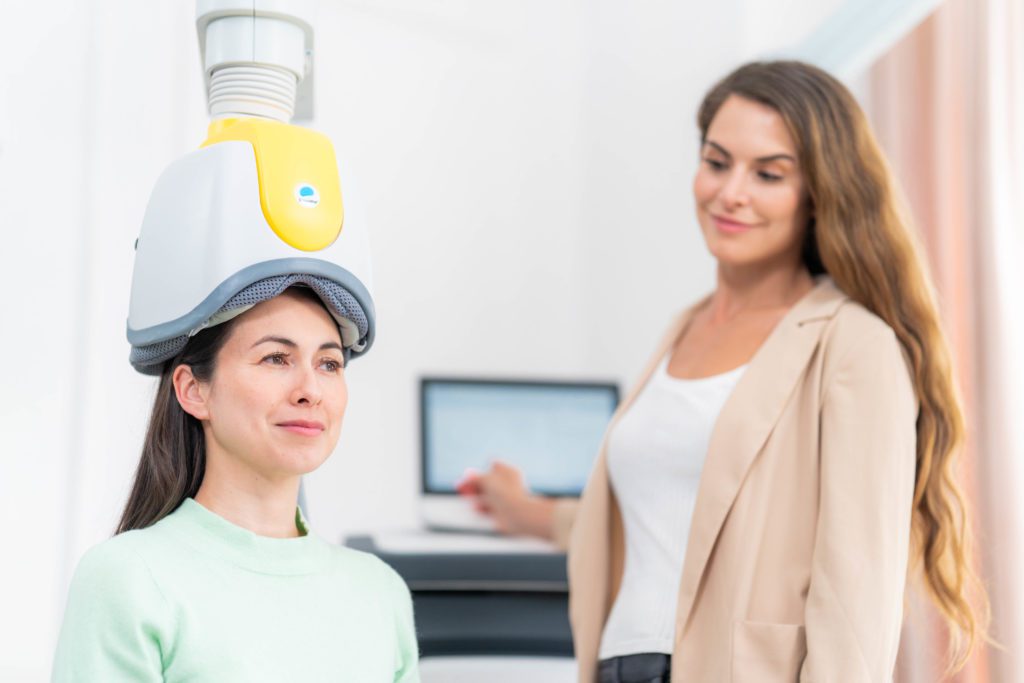
When conventional depression treatment fails, it can lead to frustration and discouragement. According to a Statistics Canada report, over 36% of Canadians living with mental health disorders feel that their needs are not fully met (source), revealing the limitations of traditional treatments. However, stopping or changing a treatment without your healthcare provider’s advice is not recommended. Let’s explore the causes of treatment resistance and present complementary methods to help you move forward in your care journey.
Why isn’t my treatment working?
Several factors can explain why a treatment for major depression appears ineffective, or why it may be hard to tolerate despite its benefits. Response to medication and psychotherapy can be influenced by genetic factors, inappropriate medication dosage, inconsistency in following the treatment plan, and more. If your treatment seems resistant, it’s essential to consult your healthcare provider again. A discussion with a psychologist or expert will help assess your current treatment, adjust it if necessary, or explore other tailored options. Your provider may consider complementary approaches such as neurofeedback or transcranial magnetic stimulation (TMS) to better meet your specific needs. However, it is crucial not to interrupt treatment without medical advice and to discuss any difficulties, side effects, or concerns to ensure safe and personalized care.
What methods can complement my treatment?
To optimize the effectiveness of psychotherapy and medication for depression, two complementary solutions may be recommended:
-
Neurofeedback
Neurofeedback is an innovative approach from neuroscience, used in particular to improve symptoms of depression. This method is based on electroencephalography (EEG), which involves placing non-invasive electrodes on the scalp to record the brain’s electrical activity in real time. Using visual or auditory feedback, the brain gradually learns to modulate its activity — much like targeted mental training.
Although it does not replace conventional treatment, neurofeedback is among the complementary options recommended by psychologists or healthcare professionals when traditional approaches reach their limits. Painless and generally well tolerated, it is increasingly recognized for promoting better emotional regulation, improving focus, and supporting overall well-being.
-
TMS
Transcranial magnetic stimulation (TMS) is a recognized therapeutic option for major depression when medication has not produced the expected results. This non-invasive neurostimulation technique, generally performed in a hospital setting under strict medical supervision, uses magnetic pulses to modulate the activity of specific brain areas involved in mood regulation. Additionally, some private clinics, such as Neuroperforma, have begun offering this service, allowing faster and more personalized access to treatment.
TMS involves the use of a medical device with a magnetic coil placed outside the head. The coil emits targeted magnetic fields to specific brain areas responsible for mood regulation, aiming to improve emotional well-being. The painless sessions take place in clinics over several weeks.

BrainsWay Deep TMS – The technology we use at Neuroperforma to treat depression non-invasively.
TMS can lead to a significant improvement in symptoms by enhancing the effectiveness of both medication and psychotherapy.
Conclusion
Neurofeedback and TMS, as offered by Neuroperforma, are complementary methods worth considering alongside traditional depression treatments. Consult a healthcare professional to learn more about how these can support psychotherapy and antidepressants.


